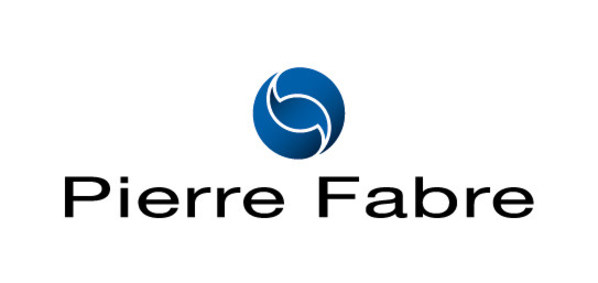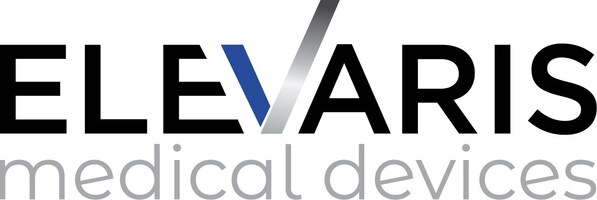 |
CASTRES, France, April 26, 2024 /PRNewswire/ -- Pierre Fabre Laboratories announced that the Committee for Medicinal Products for Human Use (CHMP) of the European Medicines Agency (EMA) has adopted a positive opinion recommending approval of OBGEMSA™ (vibegron under the international non-proprietary name) for the symptomatic treatment of adult patients with overactive bladder syndrome (OAB). Pierre Fabre Laboratories acquired an exclusive license from Urovant Sciences to register and commercialize vibegron in the European Economic Area in 2022. OBGEMSA™ is a trademark owned by Urovant Sciences GmbH.
The CHMP recommendation will now be reviewed by the European Commission (EC), which may decide on the marketing authorisation (MA) for OBGEMSA™ (vibegron). The decision will then be applicable to all member states of the European Union as well as to Iceland, Liechtenstein and Norway.
" We are very pleased to have received this positive opinion from the CHMP for OBGEMSA™. If approved, this innovative therapeutic solution has the potential to help patients suffering from overactive bladder, a condition that is very debilitating in daily life. We have been working in the field of urology for more than 40 years and OBGEMSA is proof of our determination to continue our development in this area." said Eric DUCOURNAU, CEO of Pierre Fabre Laboratories.
The CHMP positive opinion is based on positive data from two Phase 3 pivotal, randomized, multicenter and double-blind studies in patients with symptoms of overactive bladder. Study RVT-901-3003 assessed the efficacy, tolerability and safety at 12 weeks of vibegron (at a dose of 75 mg/daily) compared to placebo and tolterodine (as positive control). Its extension, Study RVT-901-3004, assessed the long-term safety, tolerability and efficacy of vibegron at 52 weeks versus tolterodine. In these studies, vibegron, as a new beta-3 adrenergic receptor (ß3 AR) agonist, demonstrated a favourable risk-benefit profile in the symptomatic treatment of urgency, increased micturition and urge urinary incontinence (UUI) that may occur in patients with OAB syndrome.
The CHMP positive opinion is also supported by clinical data from the study URO-901-1001, a randomized, Phase 1, double-blind, placebo-controlled, parallel-group study in subjects with OAB, designed to study the effect of vibegron (at a dose of 75 mg daily or placebo once daily) for a duration of 28 days at steady state on ambulatory blood pressure (BP) and heart rate (HR). Results from this study confirm that vibegron 75 mg had no statistically significant or clinically meaningful effects on Blood Pressure or Heart Rate in patients with symptoms of OAB.
About overactive bladder (OAB)
The OAB syndrome is clinically characterized by urinary urgency (i.e. a sudden compelling desire to void that is difficult to defer), with or without urge urinary incontinence UUI, and usually accompanied by urinary frequency and nocturia in the absence of urinary tract infection or other obvious pathology. UUI is the involuntary loss of urine accompanied by urgency. UUI is distinguished from stress urinary incontinence, which is the involuntary loss of urine on effort or physical exertion (e.g., sporting activities), or on sneezing or coughing. When both components are present, the classification is mixed urinary incontinence, with either urgency or stress specified as the predominant component. From a pathophysiological perspective, the OAB symptom complex is suggestive of detrusor overactivity, which may be intrinsic or may be secondary to neurological conditions such as stroke or spinal cord injury.
About vibegron
Vibegron is a novel, potent, and selective human beta-3 adrenergic receptor (β3-AR) agonist. Beta receptors are found throughout the body, but β3-ARs are predominantly found on human detrusor smooth muscle. β3-ARs agonists bind to and activate beta-3 receptors on the detrusor muscle, leading to relaxation of the detrusor muscle to increase vesical capacity and to reduce OAB symptoms. Vibegron received approval in the U.S. in December 2020 (at 75 mg once daily, under the tradename GEMTESA®) for the treatment of OAB with symptoms of UUI, urgency, and urinary frequency in adults and in Japan and in the Republic of Korea, respectively in September 2018 and in October 2022 (at 50 mg once daily, under the tradename BEOVA®) for the treatment of OAB in adults. GEMTESA is a trademark of Urovant Sciences GmbH, and registered in the U.S., and in other countries. In the U.S., GEMTESA is marketed by Sumitomo Pharma America, Inc.
About Pierre Fabre Laboratories
For more information, visit www.pierre-fabre.com, @PierreFabreGroup.
PRESS CONTACT :
PIERRE FABRE
Anne Kerveillant, anne.kerveillant@pierre-fabre.com











